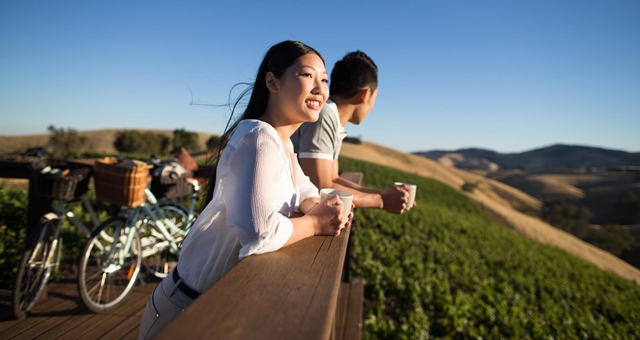Tourism Australia is embarking upon a new ‘high yield’ distribution strategy in China, aimed at building an elite network of specialist travel agents, professionally trained to sell high quality Australian holiday packages to the country’s rapidly growing middle classes.
Under the new model, Tourism Australia will work closely with a targeted group of travel agencies, each highly committed to developing new and innovative Australian tourism products for Chinese travellers.
China is Australia’s fastest growing and most valuable inbound tourism market, with more than 750,000 Chinese visitor arrivals spending more than AUD$5 billion in the past 12 months.
Figures recently released by Tourism Australia suggest that annual spending by Chinese visitors to Australia could rise to AUD$13 billion by 2020.
Tourism Australia Managing Director, John O’Sullivan, said the move was closely aligned with its Tourism 2020 strategy and would encourage more affluent travellers from Australia’s fastest growing and most valuable inbound visitor market to consider Australia as a holiday destination.
“We’re starting to see a big shift away from lower yielding group travel to more free and independent travel,” O’Sullivan said.
“This is a lucrative market and one we’re targeting through our marketing activities within China.
“The logical next step is to look at distribution, and how this too can be improved to better reach target these independent minded travellers,” he said.
Tourism Australia launched a major FIT tourism campaign in China in March, specifically targeting independent travellers by highlighting many of the country’s unique and most distinctive holiday experiences.
O’Sullivan said the vast majority of international travel out of China was still booked through travel agencies.
“Alongside the work we’re already doing to increase flights and improve aviation access, we see an equally important role for travel agents to provide this new breed of independent Chinese traveller with the information and resources to build a much richer and higher quality holiday experience,” he said.
O’Sullivan said he was confident that the focus on higher spending Chinese visitors would be welcomed by the industry, who could expect to realise improved financial returns by investing in better quality tourism products and more ‘China ready’ experiences.
“Increases in independent travellers means more Australian tourism businesses are getting to welcome our Chinese visitors, as they go farther and experience more of our country,” he said.
As part of the new recruitment drive, Australia’s national tourism organisation aims to sign up between 30 and 35 specialist agents in the first year – based primarily in the ‘Tier 1’ cities of Beijing, Shanghai, Guangzhou and Shenzhen, plus a selection of ‘Tier 2’ cities, including Nanjing, Hangzhou, Qingdao, Chengdu and Chongqing.


